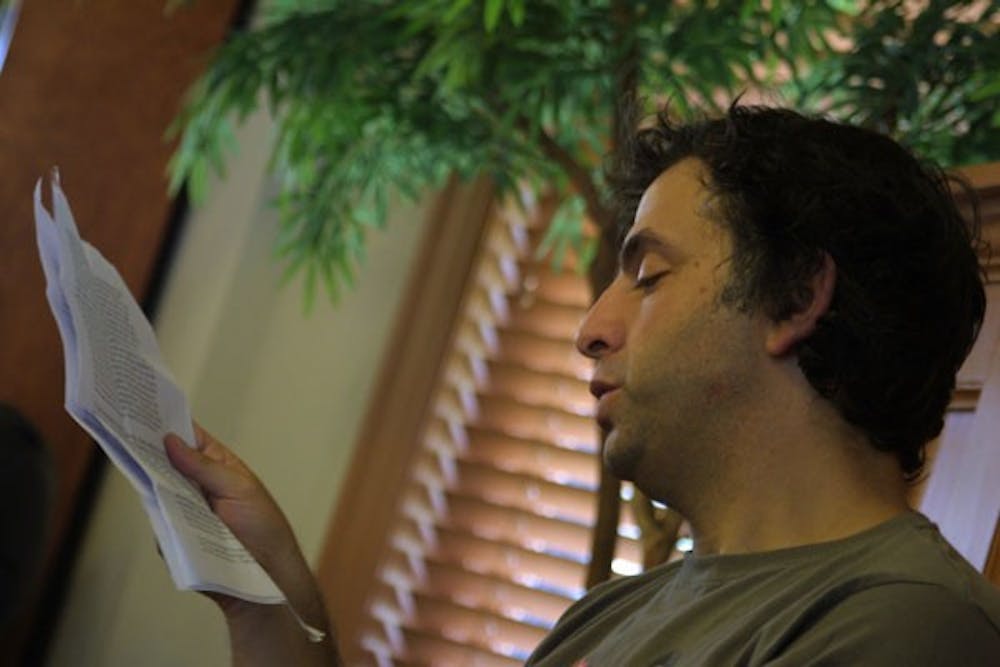Award-winning Israeli film director and author Etgar Keret discussed his creative process and the challenges of conveying Israeli life at the Piper Writer’s House on the Tempe campus Wednesday afternoon.
Keret has written three collections of short stories and co-authored two graphic novels. His film “Jellyfish,” a comedic drama that Keret co-directed with his wife, won the Camera d’Or prize at the 2007 Cannes Film Festival. His short story “Kneller’s Happy Campers” was adapted for the 2006 film “Wristcutters: A Love Story” starring Shannyn Sossaman.
Keret said his writing had been described by one German publication as dark and grotesque, which he said is because of the candid details of Israeli life that he portrays.
“In Israel, people really do carry firearms everywhere and people really do check the radio every hour for news about where they can and cannot go,” he said. “What might be grotesque for Germany is realistic for Israel.”
Keret said the intense atmosphere in Israel is not for everyone.
“I would say that it’s not the best place to live, but it’s the best place to write,” he said.
Keret’s books, which he writes in Hebrew, are rendered into English by two translators. Keret said he is fascinated by the differences between languages.
“For example, Hebrew does not have an ‘it’ form; something is either masculine or feminine,” he said. “You have to navigate all of these ambiguities.”
Hava Samuelson, director of the Jewish Studies Program at the College of Liberal Arts and Sciences, coordinated and co-sponsored the reading.
“We try to introduce Jewish themes in every field, and try to show that these things can be important, relevant and interesting to people who may know little about Jewish culture,” he said.
Samuelson prompted Keret, 42, to discuss his role in the progression of Israeli literature, and Keret said this role is different for contemporary Israeli authors.
“My generation of writers is more fragmented,” he said. “Today, people can celebrate their individual nature instead of feeling obligated to a collective experience.”
Elizabyth Hiscox, program coordinator for the Piper Center, said Keret’s work is often incorrectly labeled.
“His writing is not necessarily dark,” Hiscox said, “I think his work is true, but true in complicated ways.”
Keret said that while other writers work from their brain or their heart, he writes straight from his gut.
“Fiction is a place of sincerity, and I write to access something inside me that is difficult to access,” he said.
Keret said his story “Hat Trick”, about a poor magician who pulls a severed rabbit head out of a hat for an audience of delighted laughing children, was inspired by his writing process.
“I put my hand in the hat and I always pull out something that is scary for me but intriguing to others,” he said.
Reach the reporter as chase.kamp@asu.edu





